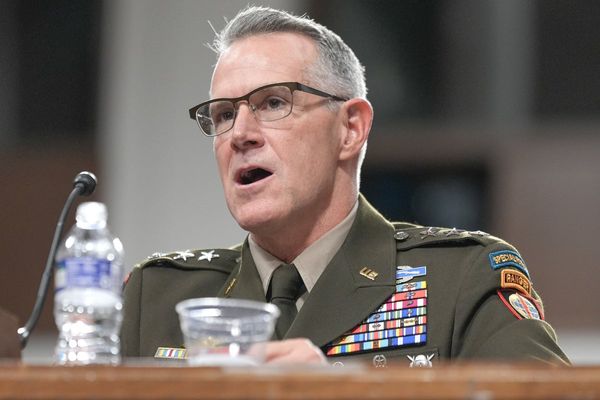
Welcome to Westworld! It’s a whole town from the 19th-century American west, immaculately recreated for your enjoyment and populated with hyper-lifelike robot inhabitants – an amusement experience so immersive Disneyland should close its mousy-eared gates in resigned humiliation.
There are saloons and brothels, and a bank perfect for a daring robbery. There’s also sex – wild, unhinged, avant garde sex – available on demand and to specification courtesy of the acquiescent locals. So acquiescent are the locals, in fact, that they’ll let you shoot them, too. Over and over again, while they bleed lifelike blood and appear to be in very real pain.
Breakfast is at half six, and dinner is at seven. You’ll have to find lunch, but there are plenty of decent places around town. Enjoy!
Except Westworld inevitably turns out not to be so fun. As soon as someone says “There’s no way to get hurt here!” we know that things will get messy.
After a breezy pre-credits sequence advertising the park – in which visiting Westworld is described by one guest as “the realest thing I’ve ever done” – we follow the holiday of two best friends. James Brolin is cool-headed and laconic as John, who’s been to Westworld before. Richard Benjamin plays the nervous first-timer Peter, who’s impressed by the realistic androids but unimpressed by the authentic dirt and austerity of frontier town life. $1,000 a day for rock-hard beds and barely drinkable booze seems (understandably) like a poor deal.
It’s only after Peter gets threatened by a belligerent local that he begins to get his money’s worth. With John’s encouragement, Peter shoots his aggressor, and the man skids into the floor’s sawdust, as blood trickles from his punctured body. Our hero is shocked – but he’s thrilled, too.
Unluckily for Peter, the local he’s just attacked is “the Gunslinger”, a strange and nearly indestructible cowboy designed to provoke guests into gunfights. This steely figure is played by Yul Brynner, and it’s a role the actor is over-associated with. Aside from one late moment – of which more later – this is routine villainy from Brynner, as scary as he is. He’s partially reviving his character from The Magnificent Seven, and partly foreshadowing Arnold Schwarzenegger’s Terminator. But Arnie was arch and sarcastic; the Gunslinger never gets a good one-liner.
As the robots begin to achieve greater sentience and deeper emotional capacity, the Gunslinger becomes obsessed by his humiliation at Peter’s hands and goes on the hunt. The film builds up to a final action sequence: an almighty cat and mouse chase around the ravaged amusement park, and into the labs and control rooms that lie below its surface.
But the descent into pure action thriller mode doesn’t mean that the film has nothing interesting to say. Nor does the fact that it doesn’t care for extended philosophical dialogues, the likes of which defined the recent Westworld TV series and sometimes bored its audience.
Westworld, written and directed by Michael Crichton, is fundamentally about the threat of artificial intelligence, and the film presumes that AI’s development will ultimately result in crazy robots seeking to kill people. This is the same conclusion arrived at by plenty of other movies – the Terminators, 2001: A Space Odyssey, M3gan – and it doesn’t feel particularly fresh.
What’s more interesting is Westworld’s idea of what will drive AI’s development. It’s a grim prediction, with a cold logic behind it. The androids of Westworld are so lifelike because humans want to enact their darkest impulses on to other humans, however much they suppress these latent desires. Society understands how dangerous indulging these behaviours would be for collective peace and prosperity, and so has outlawed them. But Westworld gives them somewhere to run free. It allows visitors to sleep with whomever they choose, as no sexual advance can be resisted, and it permits them to kill anyone who gets in the way of their ego trips.

This is one of the darkest visions in science-fiction cinema, far scarier than the ostensible threat of the Gunslinger. And it’s a startlingly different vision of the purposes of AI from the one we’ve grown accustomed to in contemporary life.
As we know and use it, AI doesn’t cater to our darkest and most recessive impulses. Rather, it engages with our most generic behaviour. It absorbs our most common forms of socially acceptable expression and emotion and imitates this. The “generative AI” that produces new things (ChatGPT, for example), works by aggregating generic examples of human made “stuff”, and then amalgamating and reshaping it into more “stuff” – stuff that is technically new, but generally soulless.
The contrast of this AI art with the original creations of Westworld – who are violent, lusty, hysterical and obsessive – couldn’t be more pronounced. There is something darkly invigorating in Westworld’s bleakness, though. It has the kind of unpalatable grit we demand from art, and don’t get from AI, as it floats ideas about human nature we’d rather not countenance.
And if the androids reflect humanity’s dark subconscious, then they’ve picked up some of its vulnerability, too. It’s there in a moment during the film’s final chase, when Brynner’s Gunslinger furrows his brow straining to see Peter’s warm body hiding behind a flaming lamp. He’s confused and distressed by the mess the overlapping heat signals are making in his vision. He doesn’t trust himself to see the world properly, and for a moment he’s oddly sympathetic. AI might never seem this pathetically human again.







